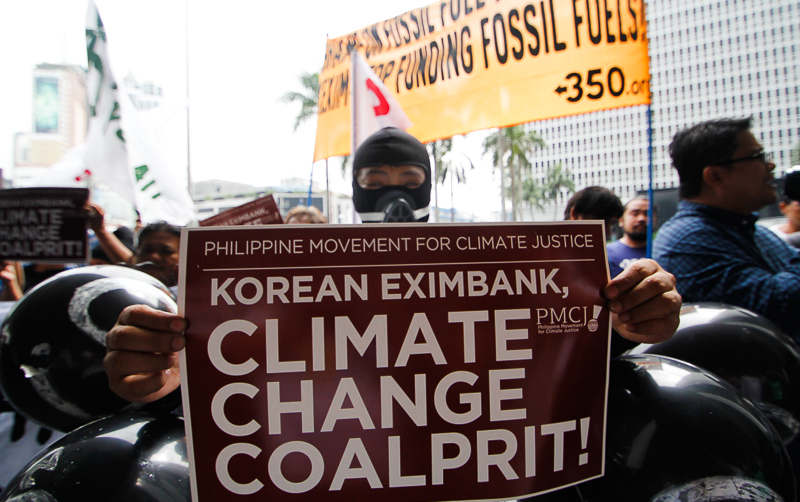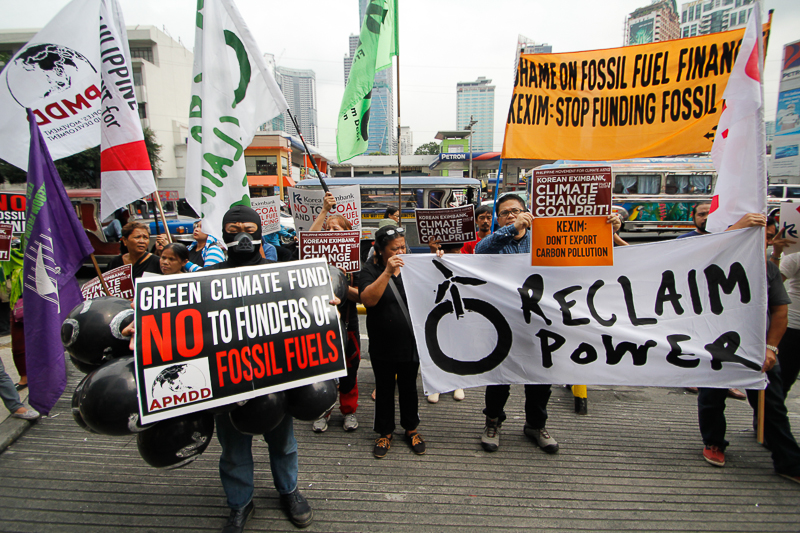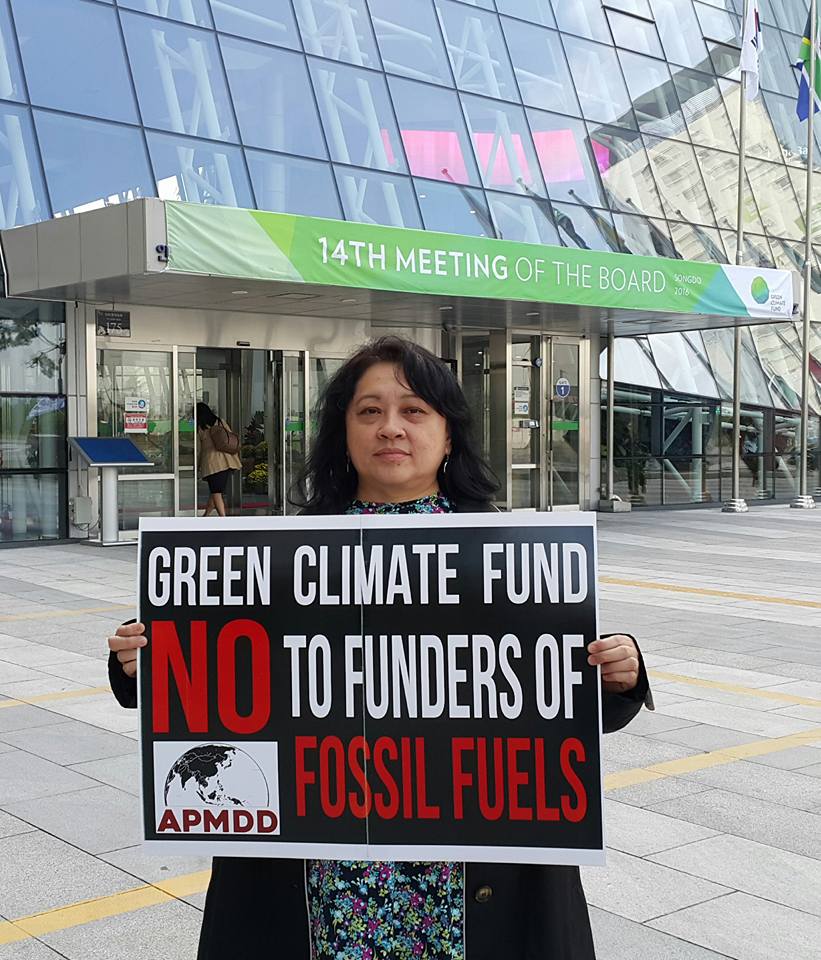By: Chuck Baclagon
Protests in the Philippines, South Korea and other countries against the Export-Import Bank of Korea’s (KEXIM) funding for coal projects have forced the latter’s withdrawal from the Green Climate Fund (GCF), a global fund under the auspices of the UN climate pact allocated for low-emission and climate-resilient development.
“After several months of campaigning against the accreditation of the Korean Export Import Bank, its withdrawal of its GCF application is an important victory for many networks and movements worldwide. But our work is far from over. We want to stop all financing of fossil fuels,” said Lidy Nacpil, the regional coordinator of the Asian Peoples Movement on Debt and Development (APMDD) and active observer to the GCF board, representing Southern civil society.

Filipino climate justice activists protested today, October 11, 2016, in front of the local headquarters of the ExportImport Bank of Korea (KEXIM), in Makati City, demanding that it stop funding fossil fuel projects worldwide and be banned from receiving climate funding. Photo: AC Dimatatac
“People from the Philippines have shown that it is possible to stop the world’s biggest bankrollers of climate change. But our work is not finished yet. We will continue to challenge governments and businesses to immediately stop further investments in fossil fuels and transition towards renewable energy,” said Chuck Baclagon, a Filipino campaigner for 350.org East Asia.

The activists demanded that Green Climate Fund board exclude export credit agencies such as the Korean Export-Import Bank from accreditation. The protest was also part of Reclaim Power, a global month of action aimed at institutions funding dirty energy projects that fuel climate change. Photo: AC Dimatatac
KEXIM applied to be accredited to receive money from GCF despite its massive funding for coal power plant projects in the Philippines and around the world. The board of the GCF is today convening in Songdo, South Korea to consider such accreditations.
KEXIM’s dirty-energy record include financing coal projects like the 206-megawatt coal plant in Naga, Cebu which is also jointly operated by a subsidiary of the state-run Korea Electric Power Company (KEPCO), the world’s top public electric utility. KEXIM also provided USD 3.8 billion for overseas coal-fired power plant projects in 2007-2014, which makes it is the world’s fifth largest financial institution in public finance for coal.

Lidy Nacpil, the regional coordinator of the Asian Peoples Movement on Debt and Development and active observer to the Green Climate Fund board, representing Southern civil society.
The anti-coal investment protest in the Philippines is part of Reclaim Power, a global month of action aimed at institutions funding dirty energy projects that fuel climate change. Groups spearheading the movement in the Philippines include Philippine Movement for Climate Justice, 350.org East Asia, Freedom from Debt Coalition and APMDD.
